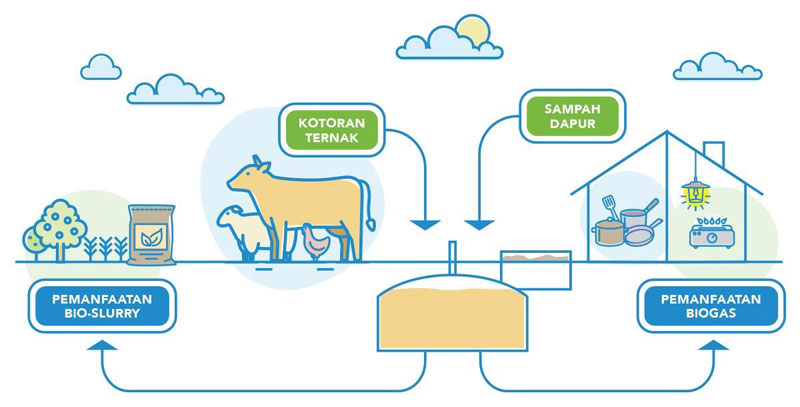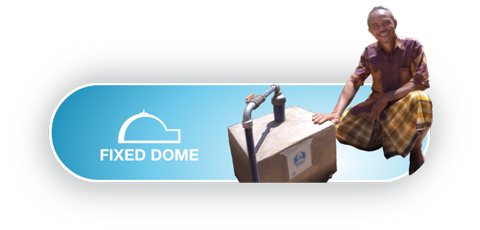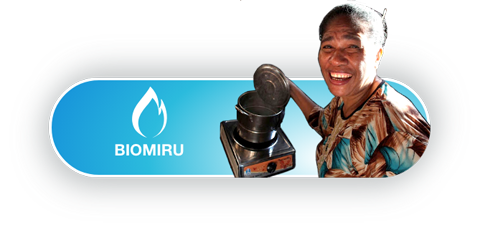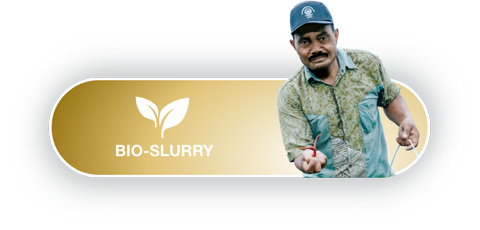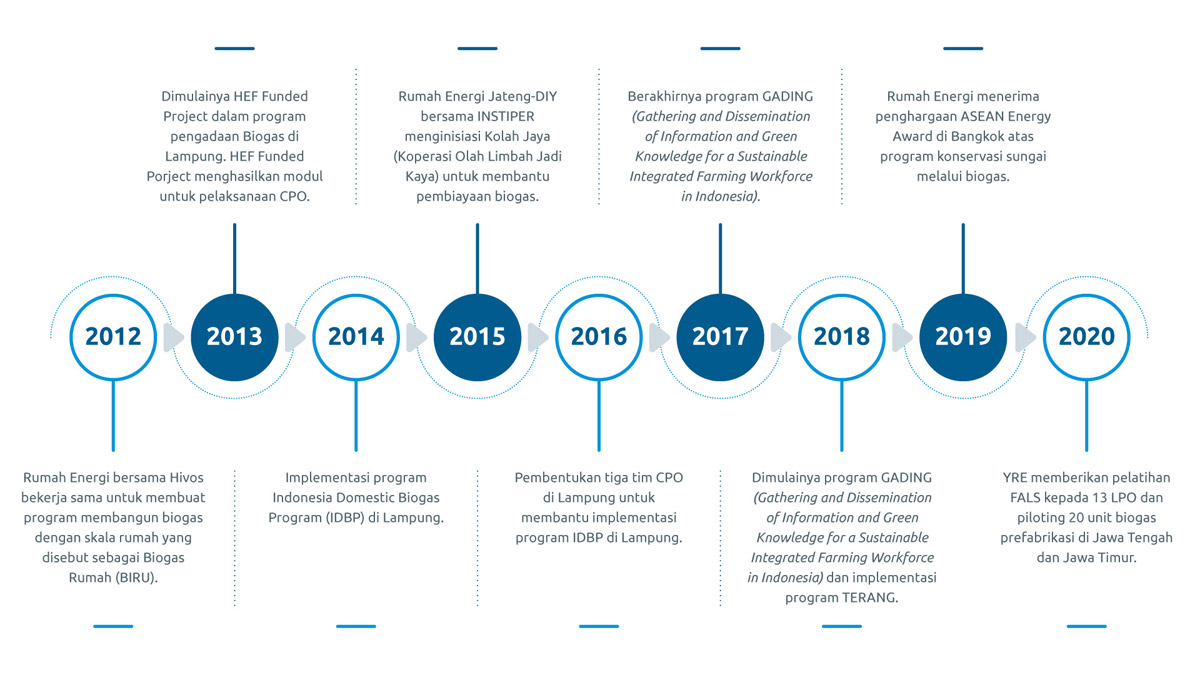Program Biogas Rumah (BIRU) adalah sebuah program multi pihak yang diinisiasi oleh HIVOS bekerja sama dengan Kementerian Energi dan Sumber Daya Mineral (ESDM) pada tahun 2009 dan kemudian diimplementasikan oleh Yayasan Rumah Energi pada tahun 2012. Program BIRU merupakan program yang bertujuan mendiseminasi program energi terbarukan melalui pemanfaatan biogas sebagai sumber energi bersih memasak dan pemanfaatan bio-slurry (ampas biogas) sebagai pupuk alami.
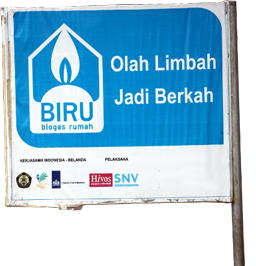
PROGRAM BIRU DI INDONESIA
Sebaran Program
14 Provinsi
Jumlah Penerima Manfaat
120.274 orang
Pengurangan Emisi
370.000 ton CO2e
Jumlah Biogas Terbangun
25.428 unit
per 30 Juni 2021
Pelaksanaan Program
Mei 2009
sampai dengan saat ini

PROSES LIMBAH MENJADI BERKAH
Biogas adalah salah satu teknologi terbarukan yang mengolah kotoran ternak dan manusia beserta material organik lainnya menjadi sumber energi bersih memasak sehari-hari. Dengan moto “Olah Limbah jadi Berkah”, biogas memberikan solusi untuk meminimalisir limbah organik dari rumah. Biogas juga bisa menjadi investasi yang tepat bagi rumah tangga karena selain mampu mengurangi produksi limbah ternak dan rumah tangga, menghemat pengeluaran, juga bisa mengurangi resiko kesehatan yang didapat dari penggunaan kayu bakar.
